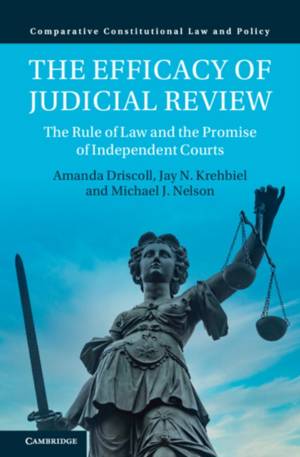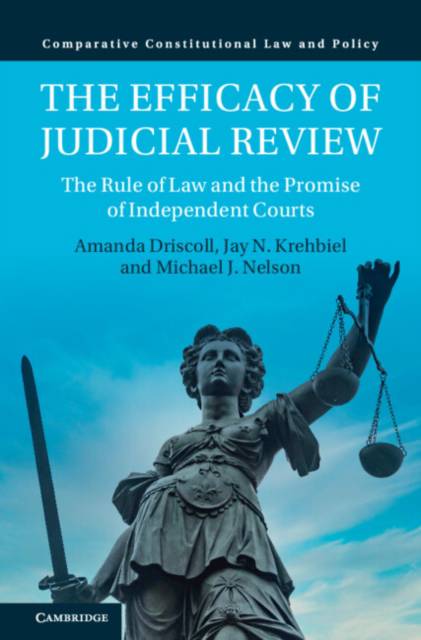
Bedankt voor het vertrouwen het afgelopen jaar! Om jou te bedanken bieden we GRATIS verzending (in België) aan op alles gedurende de hele maand januari.
- Afhalen na 1 uur in een winkel met voorraad
- In januari gratis thuislevering in België
- Ruim aanbod met 7 miljoen producten
Bedankt voor het vertrouwen het afgelopen jaar! Om jou te bedanken bieden we GRATIS verzending (in België) aan op alles gedurende de hele maand januari.
- Afhalen na 1 uur in een winkel met voorraad
- In januari gratis thuislevering in België
- Ruim aanbod met 7 miljoen producten
Zoeken
The Efficacy of Judicial Review
The Rule of Law and the Promise of Independent Courts
Amanda Driscoll, Jay N Krehbiel, Michael J Nelson
€ 187,45
+ 374 punten
Omschrijving
Over the past century, countries around the globe have empowered constitutional courts to safeguard the rule of law. But when can courts effectively perform this vital task? Drawing upon a series of survey experiments fielded in the United States, Germany, Hungary, and Poland, this book demonstrates that judicial independence is critical for judicial efficacy. Independent courts can empower citizens to punish executives who flout the bounds of constitutional rule; weak courts are unable to generate public costs for transgressing the law. Although judicial efficacy is neither universal nor automatic, courts - so long as they are viewed by the public as independent - can provide an effective check on executives and promote the rule of law.
Specificaties
Betrokkenen
- Auteur(s):
- Uitgeverij:
Inhoud
- Aantal bladzijden:
- 308
- Taal:
- Engels
- Reeks:
Eigenschappen
- Productcode (EAN):
- 9781009388924
- Verschijningsdatum:
- 4/09/2025
- Uitvoering:
- Hardcover
- Formaat:
- Genaaid
- Afmetingen:
- 152 mm x 229 mm
- Gewicht:
- 580 g

Alleen bij Standaard Boekhandel
+ 374 punten op je klantenkaart van Standaard Boekhandel
Beoordelingen
We publiceren alleen reviews die voldoen aan de voorwaarden voor reviews. Bekijk onze voorwaarden voor reviews.









